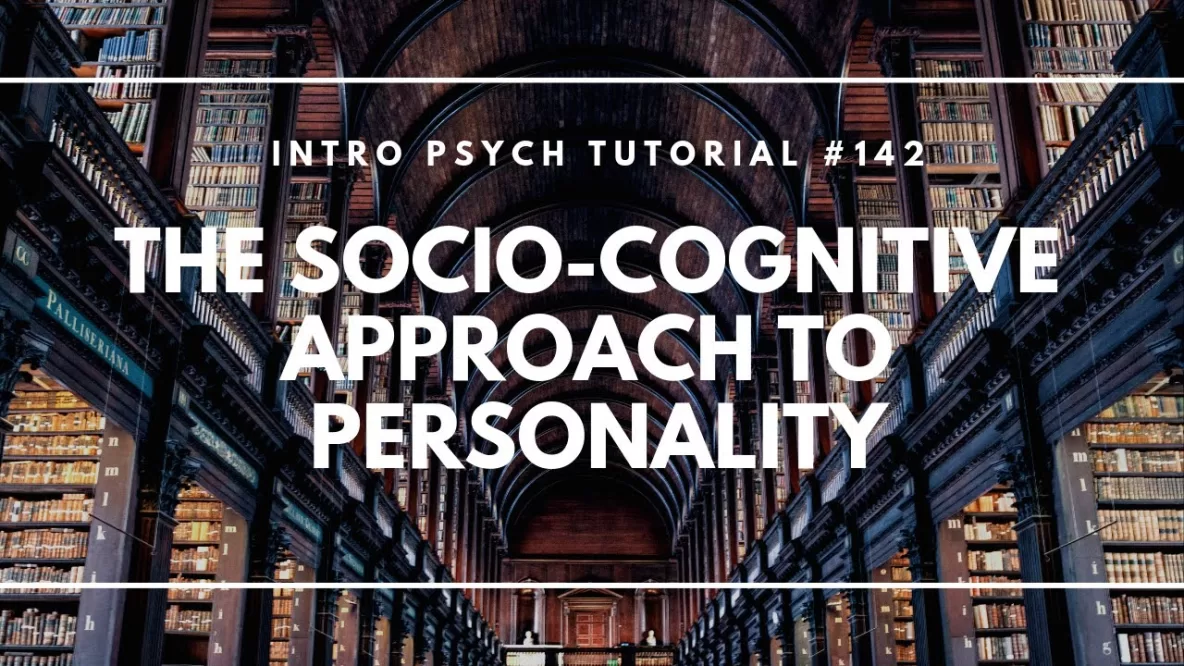In this video I outline some of the major ideas for a socio-cognitive approach to personality, which emphasizes the role of cognition and the social world. I describe the importance of schema, Kelly’s “personal constructs”, Mischel’s “person variables”, and the difficulty of separating situational influence from personality traits (known as the person-situation controversy).
Don’t forget to subscribe to the channel to see future videos! Have questions or topics you’d like to see covered in a future video? Let me know by commenting or sending me an email!
Check out my book, Master Introductory Psychology, an alternative to a traditional textbook: http://amzn.to/2eTqm5s
Video Transcript
Hi, I’m Michael Corayer and this is Psych Exam Review. In the past few videos we’ve looked at a biological approach for understanding personality. In this video we’re going to switch and look at a socio-cognitive approach and so a socio-cognitive approach is going to emphasize the role of society and our own thinking on how we express our personality.
So an important idea for this is schema. So the idea of schema is that we have sets of cognitions that guide our behavior. So we might have schema for how to behave in different situations, so you have a set of thoughts related to how you should behave in a classroom, or at a party, or in a church, and these schema are then going to influence your behavior. And that’s going to influence your expression of your personality. Now George Kelly proposed what he called “personal constructs” and so this was the idea that we all have different schema and we have different memories. We have different ways, maybe, of processing information and interpreting situations and all of these personal constructs are going to influence how we think the world works and in turn how we behave in that world.
Another related idea to this from Walter Mischel is the idea of “person variables” and so this was the idea that we all have different competencies. We have different encoding strategies, expectancies, values, and plans and so these are all going to influence again how we think things are supposed to work. We have certain expectations for certain situations and we have certain views of our own abilities and these are also going to influence our social behavior.
Now when we think about our schema, we might think about our self-schema. This refers to our schema about our self and this is probably the most detailed schema that we have because we have a great deal of experience thinking about and trying to understand our own behavior in relation to the world. So this means that we’ll have a very complex schema related to understanding our self and interpreting our own behavior. We might not have that for other people; that might influence how we see ourselves versus how we might interpret somebody else’s behavior, even if it was actually the same behavior.
So we have to remember that our self-schema is subject to the possibility for bias. It’s going to influence how you recall things, how we interpret things. Many people show things like self-serving bias, which I talked about in a previous video; the idea that we tend to remember our successes, we tend to forget our failures, right? And this is going to influence our views of our self, of our views of our own competencies, etc., right?
Now a last point here is to think about if we have these schema and they are influenced by the situations that we’re in and they influence our behavior in those situations, it can be hard to tell what the actual cause of a behavior is. Is it resulting from something about that person’s personality or is it resulting from the fact that they’re in a particular situation? And this is called the person-situation controversy, right? Because we recognize situations influence our schema and those schema influence our behavior and that’s going to influence what we might consider to be the expression of our personality.
Now we recognize this person-situation controversy in our everyday life when we talk about the behavior of others because often we put things into context. That’s because we recognize that people can act quite differently in different situations. You might say, you know, Jane is withdrawn and quiet in class, but she’s really, you know, wild and outgoing at parties, right? So we’re recognizing that she’s not just a single version of Jane here. The situation brings out certain qualities or not.
And we also use “verbal hedges“. So we might say that, you know, John is shy around new people. So recognizing that John isn’t always shy but if he’s around new people, that’s a situation where he maybe feels uncomfortable and he suddenly starts behaving in a more shy manner. We might say, you know, Jane is aggressive when confronted. So that means she’s not just aggressive all the time but if you confront her about something, you can expect that she’s going to be a bit more aggressive in responding to you, right? So this sort of shows an everyday example of how we recognize this person-situation controversy and that it’s hard to pin down certain personality aspects without any context, without reference to the situation that they appear in.
Alright, so that’s a basic outline of the socio-cognitive approach for thinking about how personality is expressed. I hope you found this helpful, if so, please like the video and subscribe to the channel for more. Thanks for watching!

